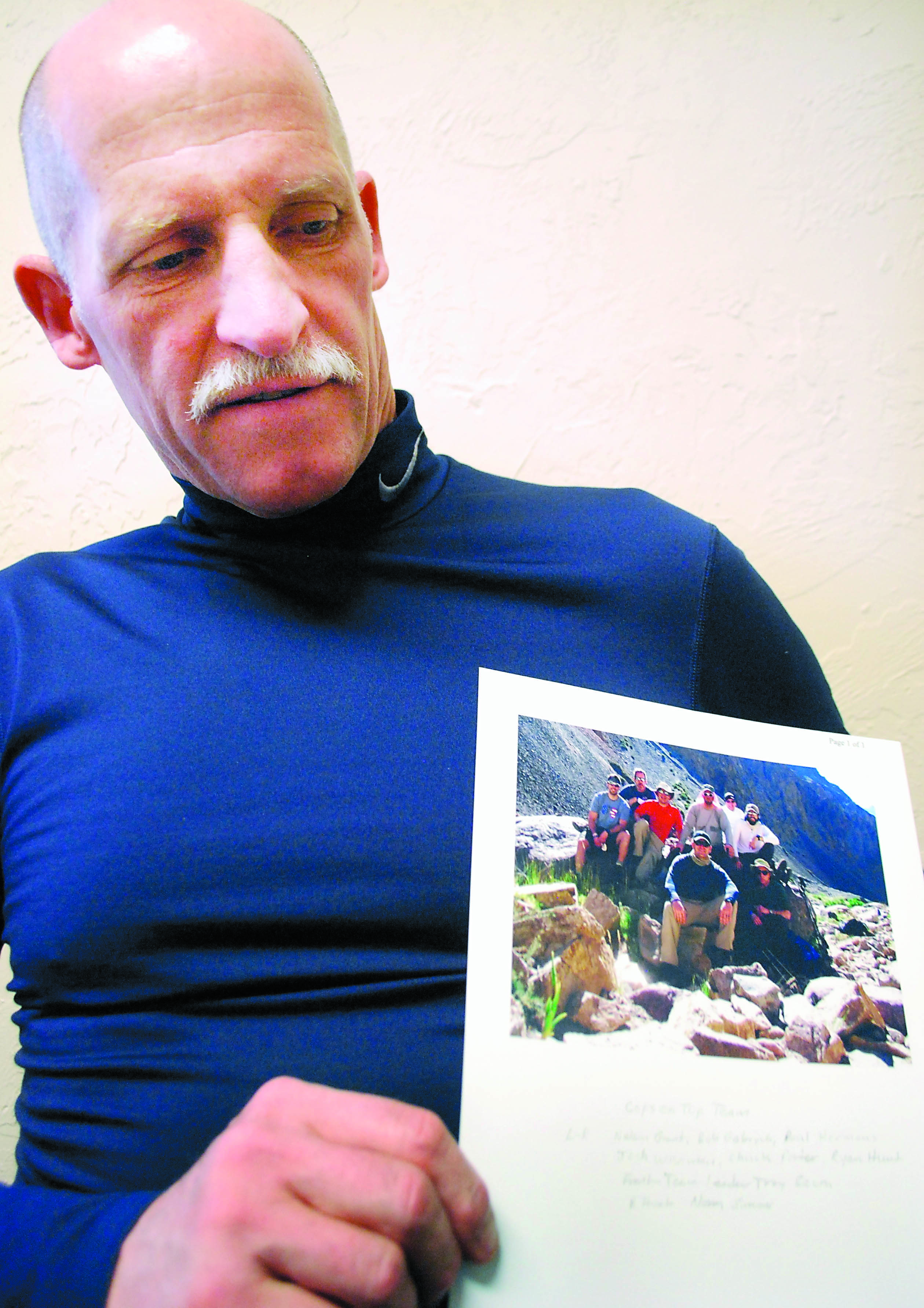SEQUIM — Norman Simons still thinks about what went wrong during his climb up Cerro Aconcagua in Argentina, the highest mountain in the Western Hemisphere.
At 19,000 feet, the 59-year-old lawman who had trained for months for the climb, suffered from altitude sickness known as pulmonary edema, his left lung filling up with fluid and restricting his breathing.
“As soon as I got to 17,500 feet, I got a stomach ache, dizziness, and I threw up,” he said, recalling he recovered from the illness at the same elevation on his way back down the mountain, calling it the “magic line.”
Simons was the oldest of a group of eight lawmen who in late January and early February climbed most of the way up rugged Cerro Aconcagua.
Along with five other “Cops on Top” members, Simons — a Port Angeles resident and law enforcement veteran of 33 years, who is filling in for a Sequim officer on a military tour of Afghanistan until June — did not make it to the nearly 23,000-foot summit.
The group ascended the mountain in honor of Officer Jonathan Schmidt of the Trumann, Ark., Police Department, who was killed in the line of duty.
The climbers experienced extremes of temperatures from the 80s and 90s during the day to below zero at night and “horrific” wind gusts of up to 70 mph.
The wind made the climb, 3,000 feet each day, even more of a challenge.
Climbers’ tents had to be weighed down with heavy rocks. The only place to cook was inside the tents, where a stove flame could stay lit, Simons said.
In the daytime, he said, “The sun reflects off the snow at very high intensity, so you feel like you are burning up.”
Simons believes it was mental errors that led to his not making it to the summit, including a late start one morning when he had to catch up with his team, and another day in which he did not drink enough water — only a liter and a half instead of the doctor’s recommended four to five liters a day.
Beginning at 16,000 feet, it is difficult to eat because of the thin air.
“You have to force yourself to eat,” Simons said, and climbers must snack along the way.
The two officers who made it to the summit — Troy Bacon, the new police chief of the Frankfurt, Ind., police department, and Chuck Porter, former police officer in Littleton, Colo. — posed with a photo of the fallen officer, which was delivered to the officer’s family to honor him.
The fallen officer’s widow “was extremely emotional and appreciative of what we’ve done,” Simons was told.
Simons, who sold Cops on Top bracelets to help fund the climb, raised about $1,000 for the group.
For a donation of $5 per bracelet, $1 went to the Concerns for Police Survivors wilderness experience program, which is designed for children of officers killed in the line of duty so they can experience the outdoors and have mentors after the trauma of losing a mother or father.
Simons paid for most of the cost of his trip, about $7,000, he said.
A retired special agent with the National Oceanic and Atmospheric Administration, Simons has served as a National Park Service ranger.
He is an emergency medical technician and a former avalanche rescue instructor.
He is unsure what he will do after June.
He’s considering climbing Mount Whitney in California a fourth time.
“I am trying to maintain my level of fitness,” he said.
________
Sequim-Dungeness Valley Editor Jeff Chew can be reached at 360-681-2391 or at jeff.chew@peninsuladailynews.com.
